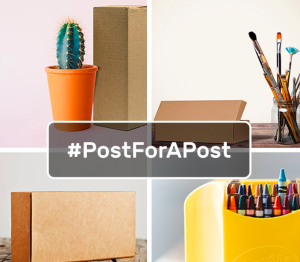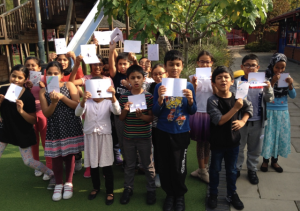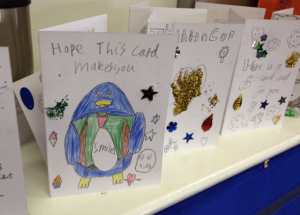New research into the nation’s communication habits has claimed that 43% of Millennials (those born between 1981 and 1997, often referred to as Generation Y) have never sent a card in their life.

This statistic is one of the findings of a survey carried out by Census Wide for ipostparcels (part of DHL) that crystalises that the rise in popularity of smartphones and social media apps has seen people communicating more than ever, but not necessarily by cards. Some 42% of those Gen Y-ers polled admitted to texting their friends every day.
And there is certainly some traffic with over 208,000 pictures are posted to Facebook and 65,000 images are posted on Instagram every single minute.

Some 40% of millennials involved in the survey confessed to never having sent a handwritten letter, 46% have never sent a surprise parcel and 42% have never sent a thank you card.
However, while these percentages do sound dramatic, there is some strong evidence from American Greetings/UK Greetings that highlights how millennials are in fact sending more cards than their previous generation.
“Millennials are now the largest segment of greeting card buyers in the US,” Jeff Weiss, co-ceo of American Greetings (the parent company of UKG) told PG Buzz in June. “Millennials or Gen Y are the first generation for well over 100 years that are writing more than the previous generation. Our research has confirmed that the youth of today are turning back to writing. They don’t particularly like talking on the phone, but feel comfortable writing about their feelings, which is good news for greeting cards.”

The ipostparcels study certainly highlighted how the younger generation do appreciate receiving cards – and 57% of those polled do send them too.
Even of the 43% of Millennials who claim they have never having sent a letter, card or parcel, 80% are sad that these aren’t sent as much anymore. Some 81% of those surveyed also said they would feel more excited if they received a package or a letter in the post from someone they know, over a text or message on social media.

Psychologist Dr Saima Latif commented: “Digital forms of communication often comprise of short phrases and emojis to express what we mean. The effect of abbreviated forms of communication is that emotions and feelings cannot be expressed as effectively and can sometimes be misconstrued. Unfortunately this can trivialise our relationships making them more superficial rather than strengthening them.”
























